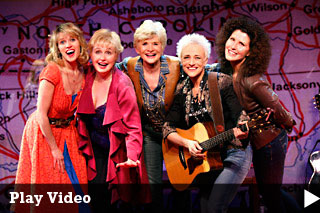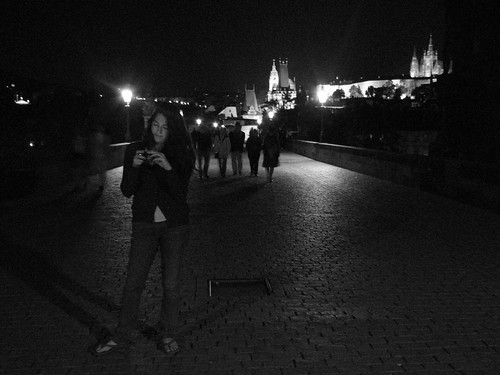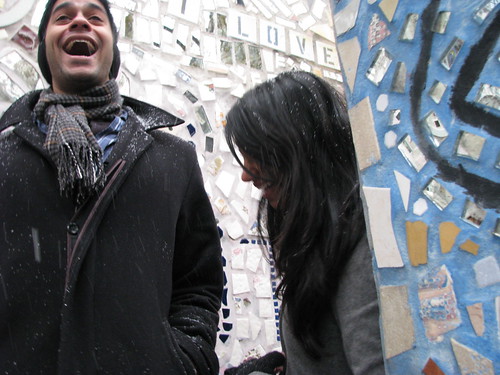 I read Jonathan Safran Foer's Eating Animals a few months ago, but I was unable to put my thoughts into a coherent review. Foer and the topic of his book were things I've argued many times before and I didn't feel like rehashing it again. Then Sal read the book and seemed to have the same reaction. So, I convinced him to write this article with me in attempt to alleviate my reviewer's guilt.
I read Jonathan Safran Foer's Eating Animals a few months ago, but I was unable to put my thoughts into a coherent review. Foer and the topic of his book were things I've argued many times before and I didn't feel like rehashing it again. Then Sal read the book and seemed to have the same reaction. So, I convinced him to write this article with me in attempt to alleviate my reviewer's guilt.COLIN: Jonathan Safran Foer’s work elicits many unique and diverse responses. With EATING ANIMALS Foer has injected himself into issue that has as many opinions as critics do of his work. I avoided starting this conversation because I wasn’t sure where to begin. For the first time in his young career Foer writes a non-fiction piece using various techniques to develop his point. Vegetarianism is an extremely delicate subject with some people which makes writing about it very difficult. I think Foer’s best attempt at avoiding his own opinions was during the definitions portion of the book. Though this glossary was littered with views and spin, it was still the most neutral portion of the book. Given as facts, Foer’s statements are clear and concise as he defines the various words associated with factory farming and vegetarianism. As there were definite sections to EATING ANIMALS, when did you think Foer truly hit his stride and made his best points?
SALVATORE: I really think that Foer was at his best when he was describing his own personal relationship to food and how that's evolved throughout his life, the reason why he was writing this book, the reason why he's decided to agree to a vegetarian diet after thirty or so years of toying with the idea. In the opening chapter, which I think is the most solid, Foer reminds us that food goes beyond simply us eating it. There is a story that goes along with recipes, that there is a history that ties along to a prepared dish - whether it's something aligned with our religious beliefs (as in the absence of pork in a Jewish diet) or with our family's interests and backgrounds. One's choice to eat something is in the end a personal one, and being that this is a book written by someone who is foremost a novelist, the personal and the interior thoughts of the writer should come out strongest. That being said, I may not be a vegetarian but I sympathize with the concept; yet I don't feel that Foer made any strides in the general persuasion argument.
'We are made of stories,' Foer writes; 'We are not only the tellers of our stories, we are the stories themselves. If my wife and I raise our son as a vegetarian, he will not eat his great-grandmother's singular dish, will never receive that unique and most direct expression of her love, will perhaps never think of her as the Greatest Chef Who Ever Lived. Her primal story, our family's primal story, will have to change.' Foer may gain sympathy for this point, but did the facts of the narrative bog down the book? Being that Foer is a novelist first and not a nutritionist or a fervent animal rights activist, can he effectively write a personal narrative that can convince readers to support his claims about vegetarianism?
COLIN: I think readership is an interesting topic with EATING ANIMALS. I haven't had the time to fact check his work (nor the proper endnotes) but I wonder if any readers will delve that far into the piece. Does this work require such investigation, or are we to be swayed by his opinions at face value? If it's the latter, why write non-fiction in the first place?
To return to your initial response, I agree the introduction is compelling but it felt like just that--and introduction. The later portions lost Foer's personality and at times I couldn't tell if he was paraphrasing or quoting subjects directly.
SAL: With a topic like vegetarianism, and with someone like Foer writing it, I would imagine that he is preaching to the choir. People who are vegetarians or vegans are going to read it in order to bolster their life-choice and increase the fury of their argument. Those who don't buy into that either aren't going to read it or will find alternative answers to the questions and images that Foer presents. Or they're going to say that meat is just too tasty to give up.
A good question then as to why write. Foer mentions that this is really for his son, a rationale for why he's having him grow up not eating animals. In essence, this book isn't for our consumption. This might be why it feels as if there's the tenuous divisions of Foer's personality, paraphrasing, and direct quotes. Like writing an e-mail to a friend, your quotations may not be within those inverted commas. But then the question is, why publish?
In the end though, I have to say that for me it's important to read books like these - those on the topic of cruelty towards animals - every so often, because it does remind me to think about where my food is coming from. Being someone who does enjoy cooking (though baking more), I wonder if I would be able to have a farm, to kill a chicken, to bleed a cow. Maybe these queries aren't the best coming from Foer, but then is there a writer that I would want these from?
COLIN: I agree to keep one’s research balanced. Despite my own proclivity towards meats, it is important to be reminded of differing views. I suppose that’s true in all fields. EATING ANIMALS might not be the best argument for vegetarianism, but reading it could be beneficial.
















